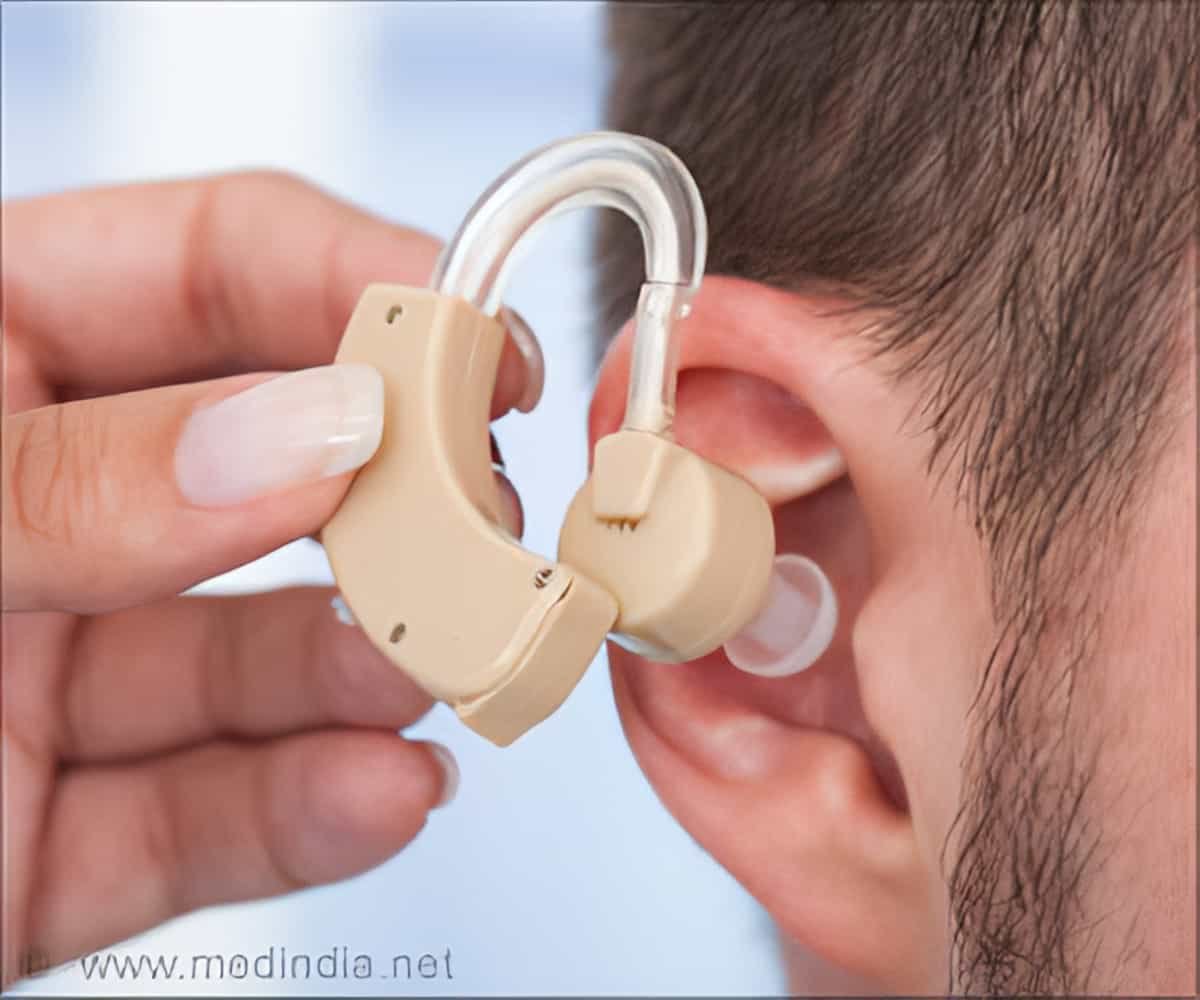Although television commercials make personal amplifiers a tempting purchase, many people don’t recognize the main difference between headphones and earphones. Hearing loss at a certain frequency cannot be reduced by amplifying all sounds, and it can be dangerous to use an amplifier where hearing aids must be used. Many organizations and audiologists try to emphasize the difference between amplifiers and hearing aids. Even the FDA has issued a notice to warn people that hearing aids cannot replace hearing aids. So, please pick up the threads of reading to know more about the differences between hearing aids and counter amplifiers.
A deeper look into both the devices
Personal Sound Amplification (PSAP) products are designed to improve ambient hearing for people without hearing loss. They are not selective for amplified sound and are generally used to “watch over” a child or baby in another room. They are also advertised to improve sound quality in entertainment activities such as bird watching and theatre. These products can be of great help to the people with hearing problems. Although this concept is interesting, some people have started to misuse the PSAP as an over-the-counter hearing aid.
Hearing aids fulfil complex functions depending on the user, while amplifiers can enhance all sounds. Thus, it can be the best choice for a person to select the correct device that can help the person with hearing loss and related problems. Hearing aids are generally professionally installed and adjusted by the user and help reduce hearing loss by increasing certain frequencies. Regardless of frequency or volume, the amplifier will only make the sound louder. Hearing aids are tailor-made for the hearing impaired, while PSAP is designed for the full hearing. Thus, before buying a product, it is important that you have a consultation with your doctor. This will provide a clear and correct idea of which product has to be selected.
Can a device be dangerous?
When it comes to invention and technology, people have always been obtained with fruitful results from the new age technologies. Be it in whatsoever field; the technologies provide the best. This remains as the best until humans start to misuse the technology. This is not just limited to devices like mobiles or laptops but also extends up to the medical devices. Hearing aids themselves are not entirely dangerous. However, people’s abuse of PSAPs is what makes them so harmful. when the device is used for the wrong purpose then there are many chances for mislead and disruption in the body system.
Although hearing aids and the technology used in hearing aids are similar in some respects, they are two separate devices for different purposes. If people with normal hearing must use hearing amplifiers, the hearing aids are designed for people with hearing loss. When people use PSAP to reduce hearing loss, the problem is not resolved. In fact, this problem is not even recognized. A complete audiogram and exam are required to diagnose hearing loss. Not getting the right help for hearing loss can cause a person’s hearing to deteriorate further. This can mean the difference between mild and severe hearing loss. Thus, by not using the proper device, it can become dangerous, and even a mild loss can be converted into a severe one.
What is a hearing amplifier?
Before thinking about the device that has to be chosen, it is important that you know about the device. Especially when it comes to medical facilities, you have to be very careful because they are the devices that extensively deal with you straight. Hearing aids are also called personal sound amplifier products. if you do not provide them a prescription also they can provide you the best device because they have people specialized in the field. More importantly, although the prices vary, they may be much cheaper than headphones. However, their function is different from hearing aids, and they are not designed to correct hearing loss. In some cases, they can even make hearing loss worse. The working principle of the hearing aid is to amplify each sound indiscriminately. Therefore, they cannot crystallize nearby sounds or isolate specific sound frequencies that may be difficult for you to hear. Nevertheless, well-designed hearing aids can help people without hearing loss hear distant sounds more easily. Bird watchers and hunters also use them for the best. For some people with mild hearing loss, they can also be a good start for hearing aids. Thus, these are the basic information that can help you in choosing the best.
What is a hearing aid?
Similar to the hearing amplifiers, it is of utmost importance to know about hearing aids. This will help you in knowing about the device that you are going to use. It is possible, and you can choose the best device only when you know about the device. Unlike hearing aids, hearing aids require a hearing assessment and prescription. The prescription is entirely yours, just like prescription glasses. The hearing aid is classified as a Class 1 medical device by the Food and Drug Administration (FDA).
On the other hand, hearing aids are not medical devices and are not regulated by the FDA. It is important not to confuse standard hearing aids or hearing aids with over-the-counter (OTC) hearing aids. The OTC hearing aid is a new class of hearing aids. Once on the market, the FDA will also list it as a Class 1 medical device. Like hearing aids, over-the-counter hearing aids do not require a prescription but are designed to correct hearing loss. This is different from hearing aids. Hearing aids will recognize specific sounds that you have a hearing impairment and make them clearer and louder. Here’s how they can help you to have a conversation in a noisy room. In addition to providing listening quality, hearing aids also have a variety of special features that most hearing aids lack. These vary, but may include:
- Tinnitus relief
- Bluetooth capability
- App connection between user and others (e.g. caregivers)
- Digital noise reduction
- Artificial intelligence
- Wind noise reduction
Thus, all these can be the greatest usage that hearing aids can provide. When you are choosing the hearing aid, there are a few steps and tips that have to be followed. This will help in choosing the best device that is available in the market for yourself or your loved ones.
Tips for choosing the best hearing aid
Go to the medical examination: Consult your doctor to rule out correctable causes of hearing loss, such as wax or ear infections. And let an audiologist (audiologist) test your hearing.
Seek a referral from a trusted audiologist: If you don’t know a good audiologist, ask your doctor for a recommendation. The audiologist will evaluate your hearing, help you choose the most appropriate hearing aid, and adjust the equipment to meet your needs. If you have hearing loss in both ears, you can use two hearing aids for the best results.
Ask about the trial period: You can usually get hearing aids during the trial period. It may take a while to get used to the device and decide if it is right for you. Ask the optician to complete the trial fee in writing, if the amount is included in the final cost of the hearing aid and how much you can reimburse if there is a situation where you have to return the haring aid that you have already bought.
Think about future needs: Ask if the hearing aid of your choice can increase the power so that it will continue to be useful when your hearing loss worsens. The hearing aids will not work indefinitely, but they should last about five years.
Check the warranty: Make sure your hearing aid comes with a warranty covering parts and labour for the specified period. Some dispensers may include office visits or professional services during the warranty period.
Beware of misleading statements: Hearing aids cannot restore normal hearing or eliminate all background noise. Beware of advertisements or other claims made by the dispenser. It is important to not fall for words.
Plan costs: The cost of hearing aids vary widely according to the type of hearing aid that you are choosing. Professional fees, remote controls, hearing aid accessories, and other hearing aid options may require additional fees. Discuss your needs and expectations with your audiologist.
Some private insurance policies: There are a few private insurance policies that can cover part or all of the cost of hearing aids; check your policy to be sure. Medicare does not include the cost of hearing aids for adults. In many states, private insurance companies must pay for children’s hearing aids. In most states, medical assistance covers hearing aids. If you are a veteran, you can get free hearing aids through the US Department of Veterans Affairs (VA).
The bottom line
Thus, these are the comparisons and differentiation that will be helpful for choosing the best between the two devices. It is better to choose the device which suits your convenience and that which fits your budget framework.





